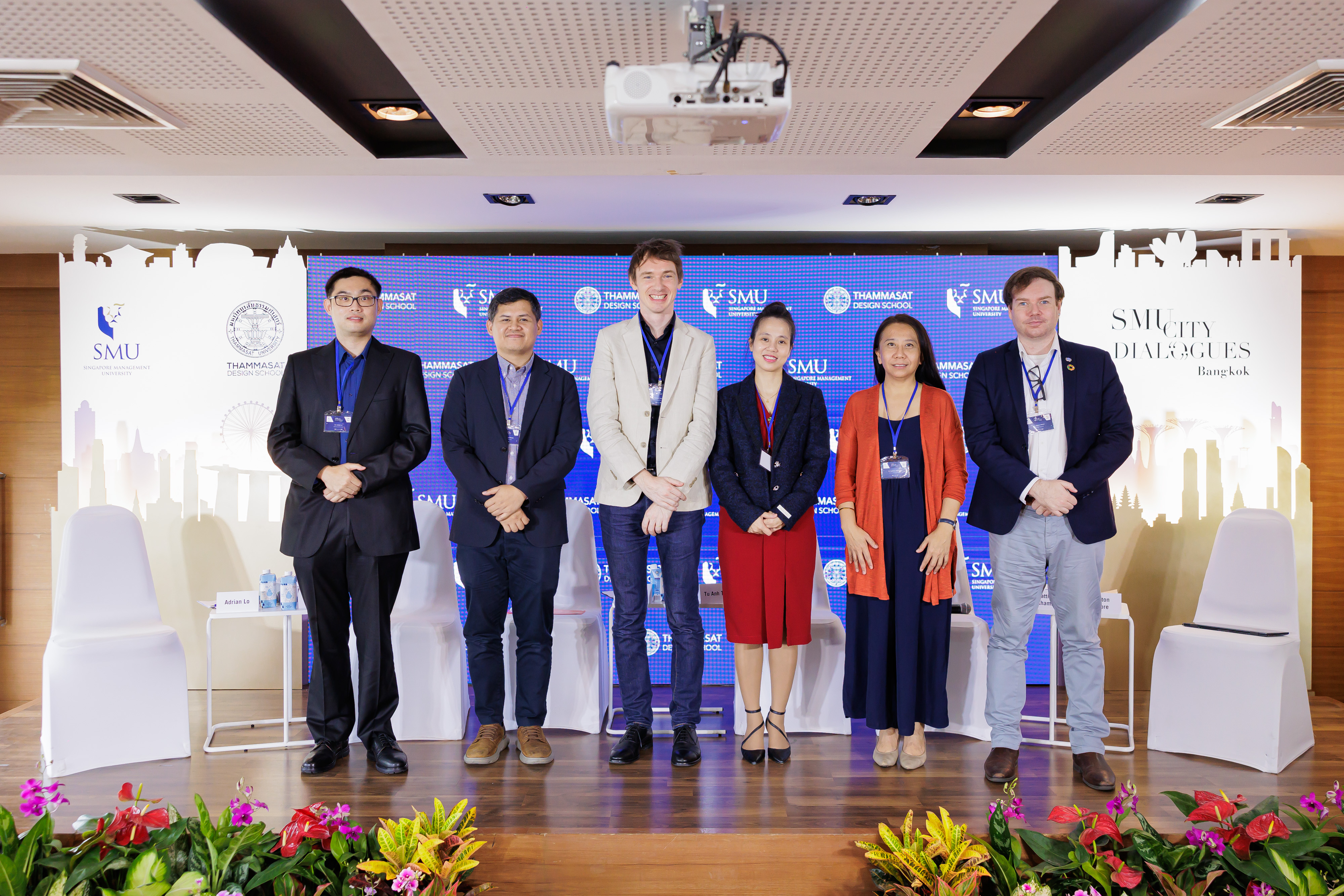City Dialogues: Growing Asia’s Secondary Cities
City Dialogues: Growing Asia’s Secondary Cities
Mr Riccardo Maroso
9 May 2024
9:30 AM - 12:30 PM
Thammasat University
Thailand
A large portion of the world's population lives in cities in Asia, and by 2030 ASEAN's population will be mostly urbanised. Apart from Southeast Asia's capitals and megacities, the region's secondary cities are where most of the growth is taking place and they tend to be overlooked. Understanding the challenges and opportunities of developing secondary cities in Southeast Asia is key to fostering the sustainable growth of cities.
Themed 'Growing Asia’s Secondary Cities - Challenges and Opportunities”, this City Dialogues event features Mr Riccardo Maroso, Programme Manager, United Nations Human Settlement Programme (UN-Habitat) as a keynote speaker. An esteemed panel moderated by Dr Adrian Lo (Thammasat University) and consisting of experts Associate Professor Orlando Woods (SMU Urban Institute); Dr Adiwan F. Aritenang (Institut Teknologi Bandung); Dr Tu Anh Trinh (University of Economics Ho Chi Minh City); Dr Rattikarn Khambud (Ministry of Interior, Thailand); Mr Clinton Moore (UNESCAP) offered insights on the challenges and solutions ahead.
-
Secondary cities, not mega-urban cities, are experiencing the most growth in the region.
-
Cities are becoming more independent. ASEAN states are moving responsibilities to local governments, giving them increased autonomy.
-
Along with the increase of urbanisation, the urban slum population in ASEAN has risen higher than the average of the developing world.
0%
of the entire ASEAN population will be urbanised by 2025
0%
increase in waste volume from 1995 levels in the ASEAN region by 2025
ASEAN’s quick urbanisation, with 70 million new urban dwellers expected by 2025, raises significant environmental concerns
Rapid urbanisation has led to unplanned, unstructured growth resulting in high car congestion. CO2 emissions in the region have grown by 6.1% annually.
Many ASEAN cities are among the world’s most vulnerable to natural disasters and environmental concerns.
"Resourcing a capital city is different from resourcing a small city, the level of thinking, the type of talent the city attracts are different…The work that ASEAN is doing is very important to drive and promote sustainable urbanisation in secondary cities."
Mr Clinton Moore
Urban Climate Change Specialist
United Nations Economic and Social Commission for Asia and the Pacific (UNESCAP)

Agenda
Agenda
-
9:30 AM
Registration & Networking
-
10:00 AM
Welcome Remarks
Asst Prof Asan Suwanarit
Dean
Faculty of Architecture & Planning, Thammasat University -
10:15 AM
Keynote Presentation
Mr Riccardo Maroso
Programme Manager
United Nations Human Settlement Programme (UN-Habitat), Bangkok Programme Office, Regional Office for Asia and the Pacific (ROAP) -
10:45 AM
Coffee Break
-
11:00 AM
Panel Discussion and Question & Answer
Moderator
- Dr Adrian Lo, Director, Urban Design & Development International Programme, Faculty of Architecture & Planning, Thammasat University
Panellists
- Assoc Prof Orlando Woods, Director, SMU Urban Institute
- Dr Adiwan F. Aritenang, Director, Postgraduate Programme, Urban & Regional Planning Programme, Institut Teknologi Bandung
- Dr Tu Anh Trinh, Director, Institute of Smart City & Management, University of Economics Ho Chi Minh City
- Dr Rattikarn Khambud, Department of Public Works & Town & Country Planning, Ministry of Interior
- Mr Clinton Moore, United Nations Economic and Social Commission for Asia and the Pacific (UNESCAP)
-
12:30 PM
Lunch

